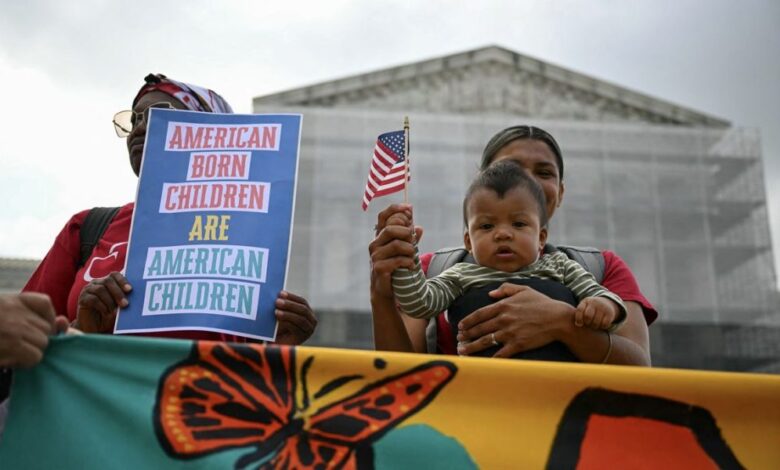30 Countries That Grant Citizenship by Birth to Nigerians in 2025

As of 2025, fewer than 30 countries still agrant automatic citizenship by birth, a practice known as jus soli.
For many Nigerians, these nations represent hope, opportunity, and a pathway to global citizenship for their children.
Global Birthright Citizenship Explained
In a world of tight visa rules and restricted immigration, the idea that a baby can become a citizen simply by being born in a country feels rare.
Yet, this right jus soli or “right of the soil” remains powerful for Nigerians seeking international opportunities.
Only about 30 countries, mainly in the Americas and the Caribbean, continue to offer unconditional citizenship by birth.
A few in Oceania and Africa still uphold limited versions of the policy.
What Citizenship by Birth Means
Jus soli allows any child born within a country’s borders to become a citizen automatically. It differs from jus sanguinis (“right of blood”), where nationality depends on the parents’ citizenship.
Nigeria follows the jus sanguinis model, meaning citizenship is based on Nigerian parentage.
This is why many Nigerians look abroad especially to the U.S., Canada, and Brazil where children can secure citizenship by birth and enjoy dual nationality.
Why Nigerians Choose Birthright Citizenship
For Nigerian families, it’s about access, not luxury. A child born in a jus soli country gains:
World-class education and healthcare
Visa-free or visa-on-arrival travel to many countries
Pathways to residency or citizenship for parents
Long-term economic opportunities in developed economies
List of Countries Granting Citizenship by Birth (2025)
North America (3 Countries)
United States: Citizenship guaranteed under the 14th Amendment.
Canada: Offers unconditional birthright citizenship.
Mexico: Grants automatic citizenship to all children born in the country.
Central America and the Caribbean (11 Countries)
Nations such as Barbados, Jamaica, Trinidad and Tobago, Belize, Dominica, and Grenada all grant unconditional citizenship by birth.
Only children of diplomats are excluded.
South America (7 Countries)
Countries like Argentina, Brazil, Chile, Peru, and Uruguay uphold liberal citizenship laws.
Brazil is especially attractive it grants citizenship to children and residency rights to their parents, leading to potential naturalization.
Oceania (4 Countries)
Small Pacific nations such as Fiji, Samoa, Tonga, and Tuvalu maintain jus soli traditions.
Though less popular with Nigerians, they preserve the oldest forms of this policy.
Africa (Conditional Jus Soli)
Most African countries, including Nigeria, follow jus sanguinis.
However, Lesotho, Chad, Tanzania, and Cape Verde have conditional jus soli, often tied to parental residency.
Nigeria’s Dual Citizenship Rule
Nigeria permits dual nationality only for citizens by birth.
A Nigerian child born abroad in a jus soli country can hold both nationalities legally. However, parents must ensure:
Nigerian parentage is correctly documented,
Foreign citizenship is registered properly, and
Both countries’ laws are observed.
Global Decline of Jus Soli
Many nations including Ireland, India, Australia, and the UK have repealed or restricted automatic citizenship by birth. These governments argue it encourages birth tourism and strains public services.
For instance, Ireland ended the policy in 2004 through a referendum, while the UK replaced unconditional jus soli with conditional citizenship in 1983.
Benefits for Nigerians
Global Mobility: Visa-free access and stronger passports.
Education & Healthcare: Access to local public systems.
Economic Freedom: Ability to work, own property, and invest.
Parental Rights: Easier residency pathways in many nations.
Dual Identity: Retain Nigerian roots while gaining global privileges.
Ethical and Legal Concerns
Critics say jus soli may promote birth tourism. Supporters argue it’s a basic human right that prevents statelessness.
For Nigerians, understanding these laws is crucial as many countries now tighten medical and visa entry rules for expectant mothers.
Conclusion
In 2025, only about 30 countries continue to grant unconditional citizenship by birth.
From the skyscrapers of Toronto and New York to the beaches of Barbados and Rio de Janeiro, this ancient right remains a rare and powerful link between nations.
For Nigerian parents, knowing where this right still exists is not just about opportunity it’s about legacy, identity, and securing a world of possibilities for the next generation.
Post Views: 20





